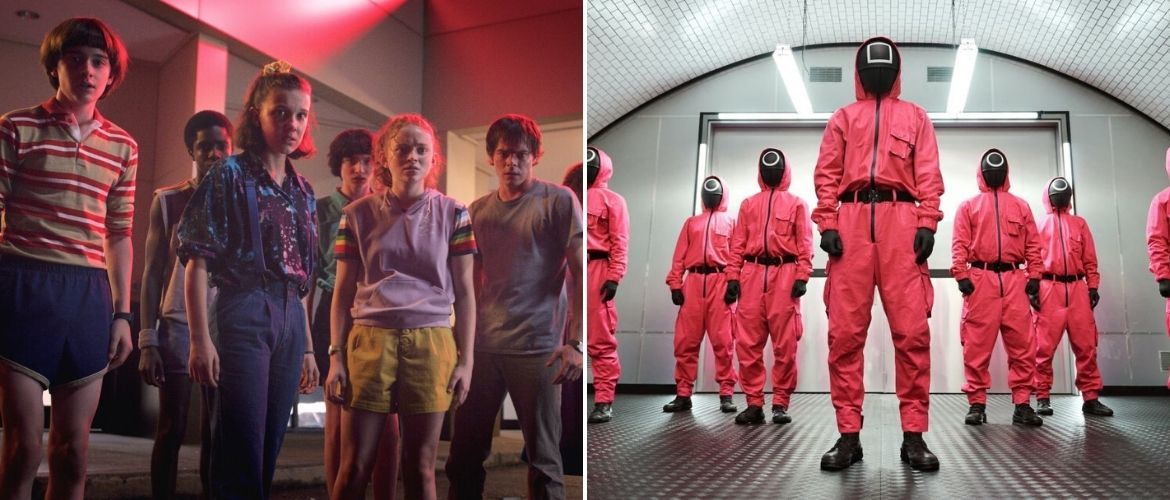These films and series are now considered one of the most successful in their time and loved by millions of people. But at one time they were all rejected by the heads of the studios or channels – and in some cases several times. We at joy-pup.com share their stories of failures followed by overwhelming success.
1. “Squid game”
Hwang Dong Hyuk’s Squid Game became the most watched TV series in Netflix history in its first 28 days. But the success of this survival thriller didn’t come overnight. Hwang wrote the script in 2008 and has been looking for a producer for 10 years. But all the local studios turned him down, calling the idea too grotesque until Netflix got interested in him in 2019. It’s an inspirational story for would-be writers and a cautionary tale for studio executives who have abandoned one of the most popular TV shows of the decade.
2. “Stranger Things”
The Duffer brothers were working as screenwriters on The Pines when they began offering television their TV series about teenagers, which takes place in the 1980s. The Duffers said they were turned down by 15 to 20 studios before their idea was accepted on Netflix. The producers didn’t like that the main characters were children. “You have to either make it a children’s show, or make it the main character of Sheriff Hopper, who investigates the paranormal in the city,” – they recall the assumption of one of the studio executives. Even Netflix, although funded, did not really believe in the success of the series. The show was set for the summer, which is considered a dead season in the film industry. But a month after its release, “Stranger Things” was watched by over 14 million people.
3. “Back to the Future”
Robert Zemeckis and Bob Gale’s screenplay for Back to the Future was rejected multiple times before Universal Pictures finally gave it the green light. The main reason was sex, although sometimes the leaders rejected the project because there was too little of it compared to the obscene teenagers of that era. And sometimes because there was too much of it – in particular, Disney did not like the love story between Marty and his mother. The film “Back to the Future” was realized only because Steven Spielberg supported this project, and Zemeckis achieved success with the film “Romance with a Stone”.
4. “Alien”
By the early 1980s, Steven Spielberg had already directed Jaws and Close Encounters of the Third Kind, and Indiana Jones: Raiders of the Lost Ark was due to hit theaters soon. In his next project, Spielberg wanted to show his childhood experiences when his parents divorced. He combined material from an untapped script called Night Skies with the story of a friendly alien who ended up on Earth. The original script was titled Alien and Me – and despite Spielberg’s track record, Columbia Pictures didn’t like it. They sent the script back, which allowed Spielberg to transfer the material to Universal Pictures, which bought and released the film in 1982. A year later, it was the most successful film to date to become a blockbuster.
5. “Buffy the Vampire Slayer”
The series “Buffy the Vampire Slayer” by Joss Whedon is based on the 1992 film of the same name. It did not win any laurels and did not become a commercial hit, perhaps because the author’s script, which Wyndon wrote, was rewritten, and little is left of the original. But just this original caught the eye of producer Gail Berman, who invited the author to resurrect his material for television. But all the major channels rejected the project. The script attracted only the young WB Network TV channel from Warner Brothers, which was eager for new interesting content and was ready to take risks. Subsequently, the series about the young vampire slayer became one of the channel’s first hits and spawned many additional TV series, comics and novels.
6. “Pulp Fiction”
Inspired by the success of Reservoir Dogs, Quentin Tarantino began looking for a producer for his cruel and funny thriller Pulp Fiction. But his script changed hands for a long time. He signed a development contract with Jersey Films, which in turn struck a deal with TriStar Pictures, which refused, considering the material “too insane” for production. Tarantino then took the script to Miramax, which made it one of his first projects since the Disney acquisition. The film’s great creative and commercial success solidified the studio’s and Tarantino’s reputation.







Only registered users can leave comments